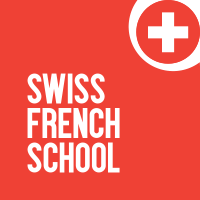Speak Like a Local: A Guide to Swiss French
Did you know there’s more than one type of French?
French is spoken across the globe—in France, Switzerland, Belgium, Canada, and many other regions. And just like accents vary in English from London to New York, French evolves with its environment. Vocabulary, pronunciation, and even grammar can shift depending on where you are.
In Switzerland, French is one of the four official national languages. But in the French-speaking part of the country—La Suisse romande—people speak what’s known as Swiss French, a local variety with its own distinctive flavor.
What makes Swiss French different?
Swiss French remains very close to Standard French, but some key features make it stand out:
Numbers
One of the most noticeable differences is how numbers are expressed. Even though some people—especially in Geneva—use the same numbers as in France, most of the French-speaking regions of Switzerland use different terms:
| Standard French | Swiss French |
|---|---|
| 70 = soixante-dix | septante |
| 80 = quatre-vingts | huitante (in some cantons) |
| 90 = quatre-vingt-dix | nonante |
This logical structure makes Swiss French easier to understand—especially when dealing with phone numbers, prices, or dates. Why it matters: Whether you're reading a bill, giving your phone number, or planning a meeting, understanding these number variations is essential for smooth communication.
Vocabulary
Some everyday words are completely different in Swiss French, especially around meals and daily life:
| Swiss French | Standard French | English Meaning |
|---|---|---|
| Déjeuner | Petit déjeuner | Breakfast |
| Dîner | Déjeuner | Lunch |
| Souper | Dîner | Dinner |
Expressions You’ll Only Hear in Switzerland
Swiss French is full of local idioms and turns of phrase. Here are some of the most authentically romand expressions:
| Swiss French Expression | Standard French Equivalent | English Meaning |
|---|---|---|
| Ça joue ? | Ça va ? / C’est bon ? | Does it work? / Are you good with that? |
| Il n’y a pas le feu au lac | Ce n’est pas urgent | No rush / Don’t worry |
| Une action (in a store) | Une promotion | A special offer or sale |
| Une panosse | Une serpillière | Floor cloth / mop |
| Les 4 heures | Le goûter | Afternoon snack (around 4 p.m.) |
| Un natel | Un portable | Mobile phone / Cell phone |
These expressions reflect daily life in Switzerland and give your French a local, authentic touch.
Pronunciation
Swiss French is known for being clear, steady, and slightly slower—which makes it easier to understand, especially for beginners and language learners. Compared to the fast-paced and sometimes slurred speech of Parisian French, Swiss French tends to be:
- More articulated – syllables are pronounced more distinctly.
- Less slang-heavy – especially in formal or professional contexts.
- Neutral in accent – with fewer strong regional inflections than other Francophone areas.
This clarity makes Swiss French an excellent entry point for anyone learning the language in a real-life context.
Why learn Swiss French?
Whether you’re living, studying, or working in Switzerland, understanding the local variation of French is essential.
In daily life—at work, in shops, or in social situations—people around you will use Swiss French vocabulary and expressions. By learning how French is really spoken in Switzerland, you’ll be more confident and better integrated.
You’ll also avoid awkward misunderstandings. Imagine thinking you’re being invited for lunch when someone says “viens pour le dîner”… only to find out it’s actually dinner time in Swiss French!
How to learn Swiss French effectively
1. Immerse yourself in local content
Watch Swiss French TV (like RTS), follow local influencers on social media, and listen to Swiss radio stations to pick up real-world usage.
2. Practice with locals
Join conversation groups or language meetups. Don’t hesitate to speak—mistakes are part of the process!
3. Learn with a trusted school
All the tips above are helpful, but to make real, lasting progress, it’s essential to learn with professional guidance.
Ready to speak French like a local?
At Swiss French School, we offer personalized French courses tailored to your level, pace, and goals.
Our native-speaking teachers specialize in how French is actually spoken in Switzerland. They’ll guide you step by step—helping you master grammar, build vocabulary, and understand the local expressions and nuances of Swiss French.
Contact us with no obligation — our team will get back to you within 24 to 48 hours with a customized learning plan.

